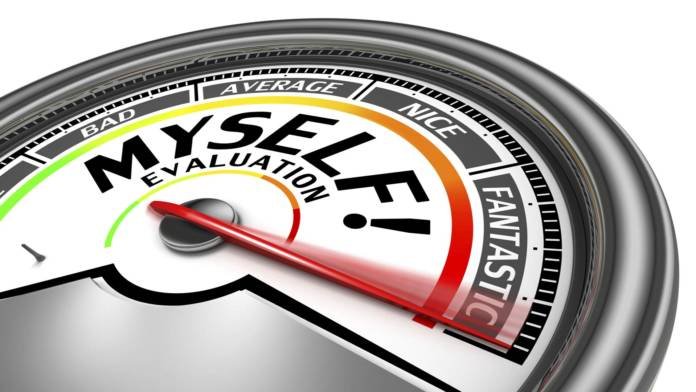
Source image
Self-esteem, one of the ingredients essential to the success of a life.
In this post, we will also see the relationship between self-esteem and self-confidence. We will see that these two aspects are closely linked. If self-confidence is linked to the greater or lesser awareness of our abilities, self-esteem is linked to the value we give to what we are or what we do.
what is it Self-esteem?
Self-esteem is the culmination of a personal assessment. It reveals, to some extent, whether we live in harmony with ourselves, with the values we have adopted or built.
Self-esteem is expressed by a certain pride: the pride of having accomplished something that corresponded to its values; it is therefore based on a constant appreciation of our own actions.
If we are not necessarily aware of this assessment that we apply to ourselves, each of our behaviors plays a role in self-esteem.
Indeed, consciously or not, we constantly judge or evaluate each of our actions. In some situations, they value us and increase our esteem, while in others they can become a pretext for us to devalue and lower our esteem.
A person who advocates honesty, for example, is forced to lie to avoid a dispute. It must, in fact, run counter to its values; she will then have the feeling of falling in her personal esteem.
On the other hand, self-esteem will increase when (for example) we venture into action that, until then, terrifies us. We will feel pride and therefore our level of esteem will increase.
Self-esteem is therefore not a constant value: it remains subject to fluctuations and changes.
When we act in accordance with our values, it increases. It diminishes whenever our acts conflict with them.
Self-esteem can therefore be affected by more or less important variations, because its level also depends on the greater or lesser attachment to these values.
When we decide to deal with important issues that we hitherto avoided, we will gain self-esteem. Self-esteem will therefore increase, whenever we manage to surpass ourselves, whenever we are going to dare. It is therefore not only related to self-confidence but also to assertiveness.
Confidence, self-esteem and assertiveness
Self-confidence will help to increase self-esteem insofar as it helps us to deal with situations that we had difficulty dealing with. This confidence will help us to affirm ourselves more, and this affirmation of self will at the same time contribute to strengthen our personal esteem.
Self-esteem contributes to the quality of our lives
having self-esteem It is easy to understand, after what has just been said, that self-esteem plays an important role in the quality of our lives. Indeed, the person who enjoys a healthy self-esteem, will more readily recognize his desires and aspirations by giving them value and seeking to realize them.
On the other hand, a person whose self-esteem is weak, will tend to conceal his desires or renounce them, thinking in this way that he does not deserve to benefit from the fruits of this realization. She will not try to excel because her inner dialogue will be of the kind: "what good, you are in any way incapable".
Indeed, lack of self-esteem is often accompanied by a lack of self-confidence; a lack that prevents the individual from becoming aware, on the contrary, that he has the capacity to do so.
People who lack self-esteem, refrain from seeing great and seeing far. They doubt so much of their ability to succeed that few things seem likely or possible. It is for others, never for them.
It is a veritable vicious circle in which these people are locked up. They see no way out that can lead them to a fulfilling and happy existence, since they think, in any case, never deserve what they can desire.
Birds of a feather flock together
There is no chance in the world of relations: the law of attraction is patent. Indeed, unconsciously or not, our way of thinking and seeing resonates with people whose self-esteem is similar.
If we think we deserve rich and fulfilling relationships, we will meet people who will go in the direction of this desire. On the other hand, if our level of esteem is low, we will live with the idea that we do not deserve, even if we desire it deep down, to have this type of relationship.
Low self-esteem can even lead to relationships that are not only rewarding but destructive.
Low self-esteem may predispose people to accept being treated with little respect and to be subjected to certain ill-treatment on the part of others - maltreatment which will further reduce that self-esteem.
A strong self-esteem will, on the contrary, make us refuse any form of destructive relationship. By our way of being, we will refuse this lack of respect and look instead for the company of people able to recognize our value
Conclusion
Self-esteem is acquired at whatever level you enjoy. The method consists, first of all, in evaluating our current level in order to see what is appropriate.
However, and in general, to regain self-esteem, it is necessary to begin to establish a better relationship with oneself. You will understand, the way we perceive ourselves, directly influences our relationships with others.
Some personal development practices will lead to a healthier and more "friendly" relationship to oneself.
The attention paid to listening to body sensations, the ability to pacify thoughts, and the observation of breath are excellent techniques which, while encouraging detachment, allow a more respectful relationship to be established.


